You may know Ray Bradbury – but do you know him well enough?
He wrote 27 novels and over 600 short stories, sold by the millions all over the world. So, 100 years after his birth, why is he still overlooked by the literary community, asks David Barnett

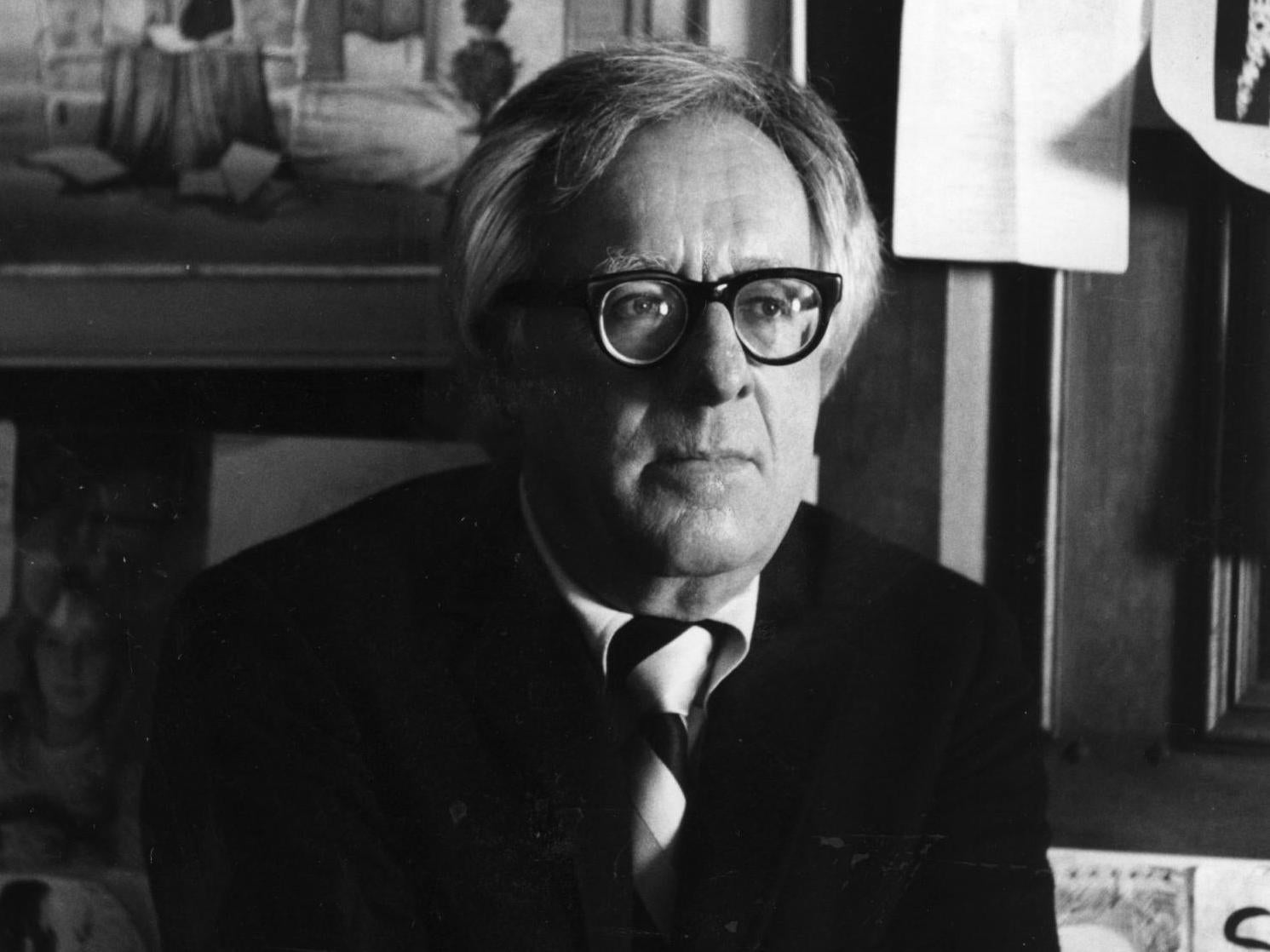
You know Ray Bradbury. He’s the boy who, at the age of 12, went to see the travelling Dill Brothers Combined Shows that often passed through his home state of Illinois, and stood, entranced, before the spectacle of Mr Electrico, one autumn night.
The carnival act sat in an electric chair while a stagehand threw a lever that sent 50,000 volts pulsing through his body, his hair standing on end, lightning crawling over his skin like glowworms. He raised a sword, a real-life sword, and with electricity humming at its sharp tip, he anointed the young Bradbury with the lightning, exhorting him in a quiet whisper to “Live forever!”
You know Ray Bradbury. He’s the man who wrote more than 600 short stories. You’ll have read some of them. If you haven’t, you’ll be aware of them, of the things he wrote about which has seeped into your consciousness through some strange osmosis, like a spell cast by an April witch.
The vast, sad sea monster, the last of its kind, plaintively and hopelessly answering the foghorn call from a remote lighthouse on a night best by impenetrable sea frets. The time-travelling safari to the age of dinosaurs where history is irrevocably altered because of one crushed butterfly. The man who is terrified of his own skeleton. The baby who hates his parents with a murderous passion for removing him from the safety and comfort of the womb.
He’s the man who, as well as his prodigious short story output, also wrote novels. Something Wicked This Way Comes, in which a sinister carnival rolls into town – and the lives of two young boys – one October night. Fahrenheit 451, set in a future society where books are outlawed and firemen don’t put out blazes, but start them, igniting conflagrations of clandestinely held books that drift up in blackened smuts on the air, their knowledge lost forever, buoyed by the cheers of the masses.
And he’s the boy who roller-skated across Los Angeles to sneak into movie lots for a chance to spy the stars of the silver screen, and then later worked in Hollywood himself, writing the screenplay for John Huston’s 1956 adaptation of Moby Dick, starring Gregory Peck, and the story for the classic B-movie alien horror It Came From Outer Space. Maybe you saw the 1953 movie The Beast From 20,000 Fathoms, loosely based on his story The Fog Horn. Or François Truffaut’s adaptation of Fahrenheit 451. Maybe you remember the 1980s TV series The Martian Chronicles, based on his interlinked short stories originally published in the UK as The Silver Locusts in 1951. And you wouldn’t have forgotten Jonathan Pryce’s turn as the villainous Mr Dark in the 1983 movie of Something Wicked This Way Comes.
But how well do you know him?
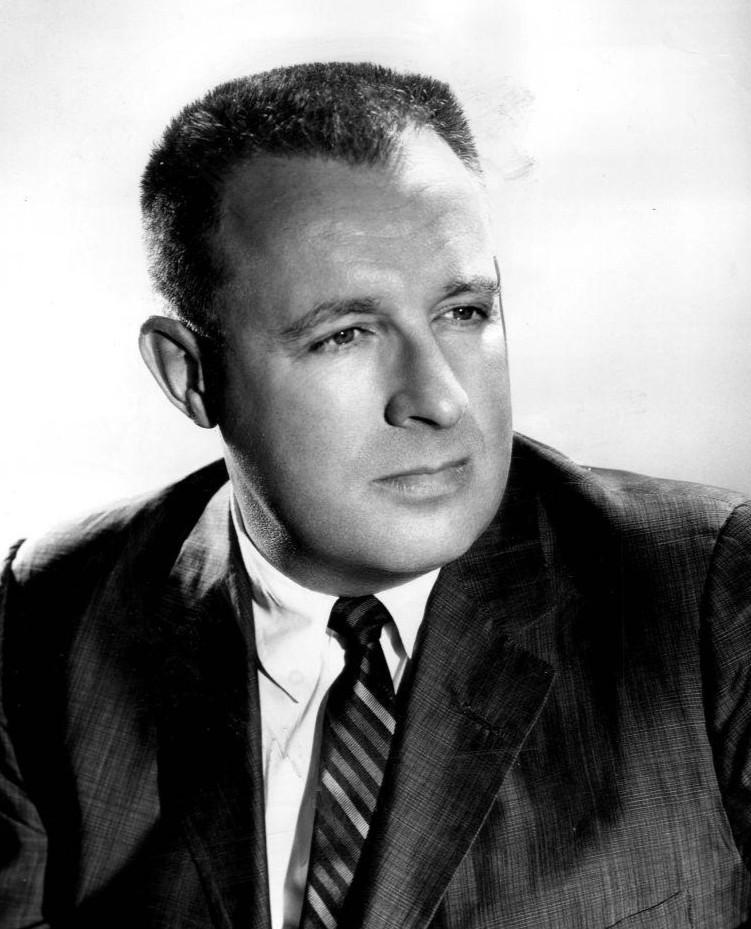
Saturday 22 August marked Bradbury’s centenary. He was born in Waukegan, Illinois, to a father of English ancestry and a Swedish immigrant mother. He was descended from Mary Bradbury, one of the women tried as a witch at Salem in 1692. She managed to escape the hanging she had been sentenced to, though, as the trials were discredited and she was released.
He died in Los Angeles on 5 June 2012 at the age of 91. I wrote something for a national newspaper about his death as the news broke, and I can remember feeling an incredible sense of loss that I would never meet the man whose words I had been reading for almost as long as I could remember.
If you have read Ray Bradbury, you probably came to him as a child. In a library, most likely. Bradbury readers always seem to find him in libraries, which is fitting. He wasn’t educated beyond ordinary school, and haunted libraries, teaching himself about anything and everything. Libraries and Bradbury go together, entwined in a strange and comforting way.
I remember graduating from the children’s section at the mobile library that visited my street every Tuesday and being gifted the rich and almost wicked pleasure of being allowed to browse the adult shelves. The librarian, who was also the driver of the long, book-filled bus, a man with a shock of white hair and pink, scrubbed cheeks, helped me select a couple of science fiction anthologies from the shelves. I’m not sure what the story would have been that first entranced me, but it was likely The Foghorn, or Invisible Boy, or There Will Come Soft Rains, or A Sound of Thunder. Tales of dinosaurs and witches and far-flung interplanetary wars. But like nothing else in those books. Bradbury was probably the first author whose name I sat up and took notice of, whose style I recognised instantly, who offered so much more than any other of the writers filling those thick, doorstep-sized science fiction anthologies. I wouldn’t have known it at the time, but what Bradbury offered, even in his bleakest and most horrifying scenarios, was hope and humanity.
I just got this sense that he was in love with the world and he knew that he didn’t have too much time, so he was just enthusiastic and fascinated about every single thing
The author Joanne Harris came to Bradbury through the library as well. “There were those big yellow science fiction anthologies, and I was reading a lot of science fiction at the time, and I always looked for his name. Then I just tried to get hold of anything I could by him, and found the collections such as S is for Space and R is for Rocket, then the first novel I read was Something Wicked This Way Comes.”
For Harris, it’s Bradbury’s way with language that she finds particularly entrancing. “He is an exceptionally good stylist,” she says. “He’s very clearly in love with language and he has this kind of exuberance with it, even when he’s writing about something which is fundamentally quite depressing, he’s still got this linguistic exuberance about him and this this joy of expressing things in words.”
Before the death of Bradbury’s beloved wife Maggie in 2003, Harris met them both for dinner in LA. She recalls: “I mean, I’d loved his books since I was eight or nine and I didn’t really get to meet my heroes very often, most of my heroes were either dead or not very well. Initially I was just completely overwhelmed by the fact that this guy who I loved since I was a child was was there in the room and I just couldn’t say anything for about 20 minutes. And then when I finally did open my mouth I just burst into tears.”
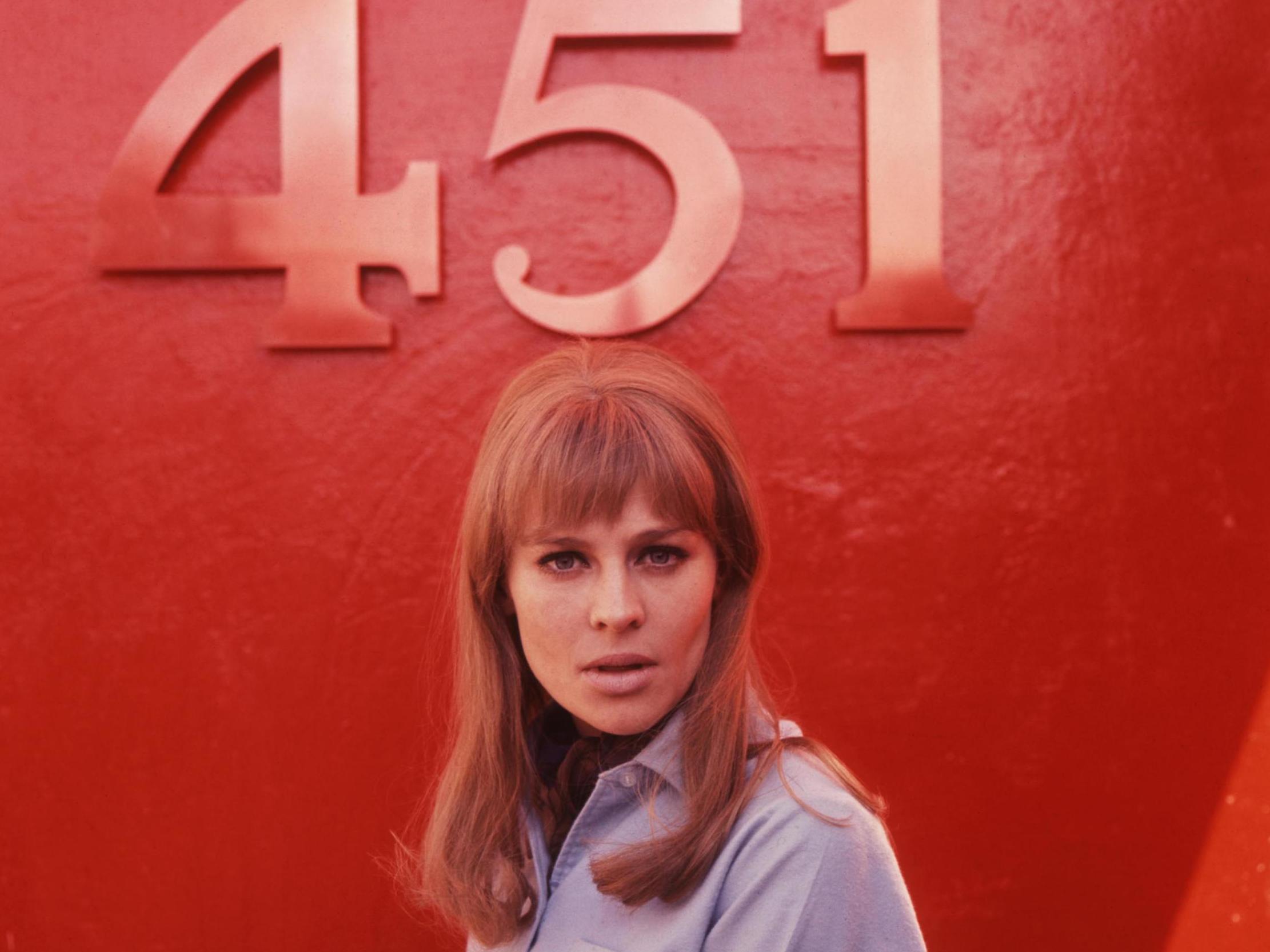
One thing she remembers vividly is Bradbury’s enthusiasm for life, even as he was approaching his final years. She says: “We had such a good time that night and he was so much in love with his wife as well… I mean he kept sort of looking at her and holding her hand and they were both so old.
“But everything that he did was kind of full of enthusiasm and curiosity and he was getting on even then and he was a bit blind, but you know everything was ‘Hey have you seen this?’ and ‘What’s that guy eating?’ and ‘Can I taste that?’ and ‘What do you mean you’ve never had a root beer float? Quick bring her a float!’.
“I just got this sense that he was in love with the world and he knew that he didn’t have too much time, so he was just enthusiastic and fascinated about every single thing.”
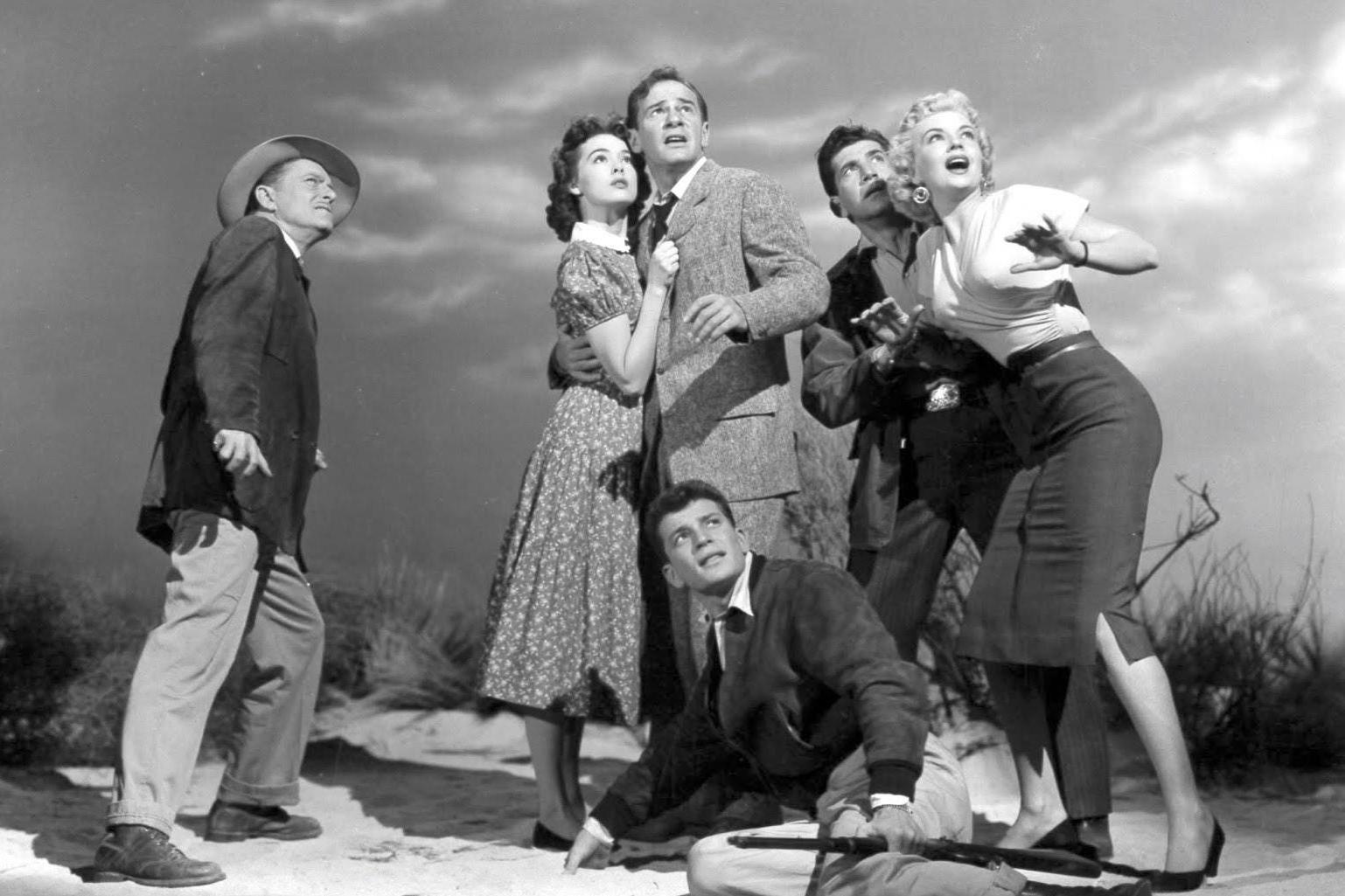
Bradbury and Harris continued to correspond after that first meeting and he would send her Christmas cards and little gifts every year while Harris would reciprocate with audiobooks because of his failing eyesight in his later years.
On the last Christmas before he died he sent her a copy of a short essay he’d written privately for his friends – “He must have put it in the envelope over breakfast because all these toast crumbs fell out,” she laughs – and she says: “It was the most touching thing I had ever read. It was all about how, when you’re dead, you would give everything to get just one minute of life, of any life, to have all the things you’ve ever had just one more time. It was quite astonishing.”
Although his stories are often about dinosaurs and monsters and going to Mars and futures plagued by war and calamity, that’s not really what Bradbury’s stories are about at all. They’re about people. And they are stories that grow with you. A case in point is Something Wicked This Way Comes. Ostensibly it’s about two boys, Jim Nightshade and Will Halloway, both on the cusp of growing up, and having one last Halloween blast with the travelling carnival and its sinister ringmaster that blows into their town, just ahead of a storm.
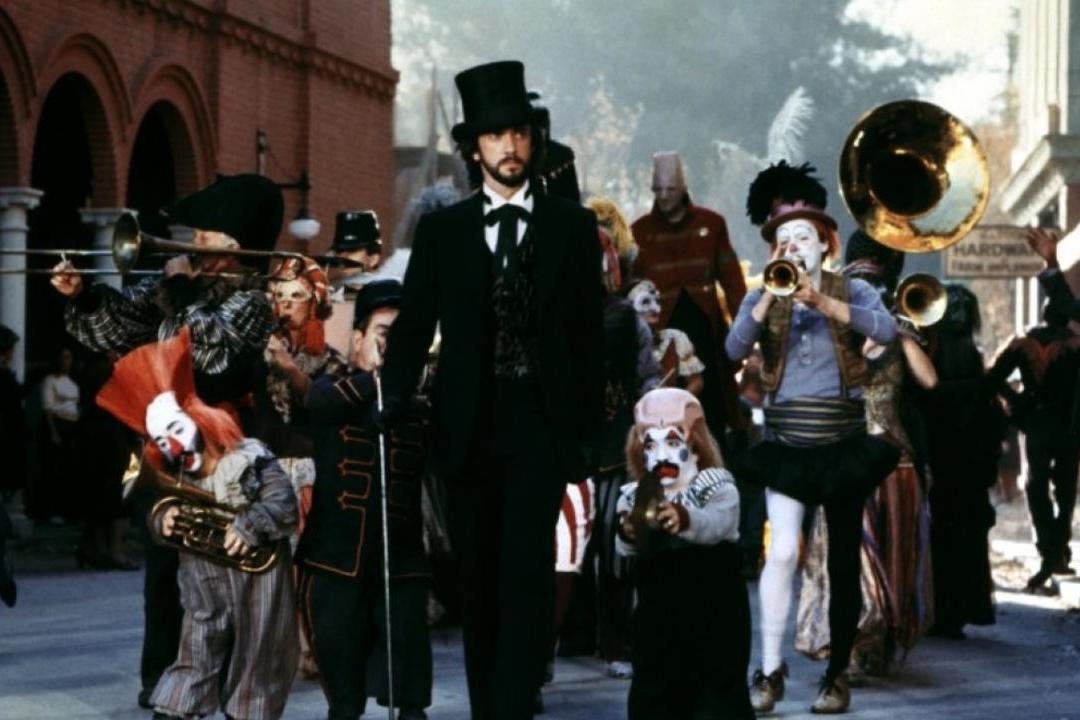
At least, that’s what I thought it was about when I read it as a child. As an adult, it was something of a shock to realise that the book is actually about Will’s father Charles, and his overwhelming fear of growing old, of being too old for his younger wife, of being too old to be a proper father for his son before Will, too, gets older and leaves childhood things behind for the world of adulthood.
“I think that may be Ray’s weirdest story of all,” says Neil Gaiman. Like Harris, Gaiman discovered Bradbury – in a library, of course – at the age of seven or eight. Like Harris, he was firm friends with Bradbury. And, of course, he loves Something Wicked This Way Comes. “Once you read it as an adult you realise that this is in no way the boys’ story. That’s not what it’s about at all. It shines this amazing light into growing old and ageing.”
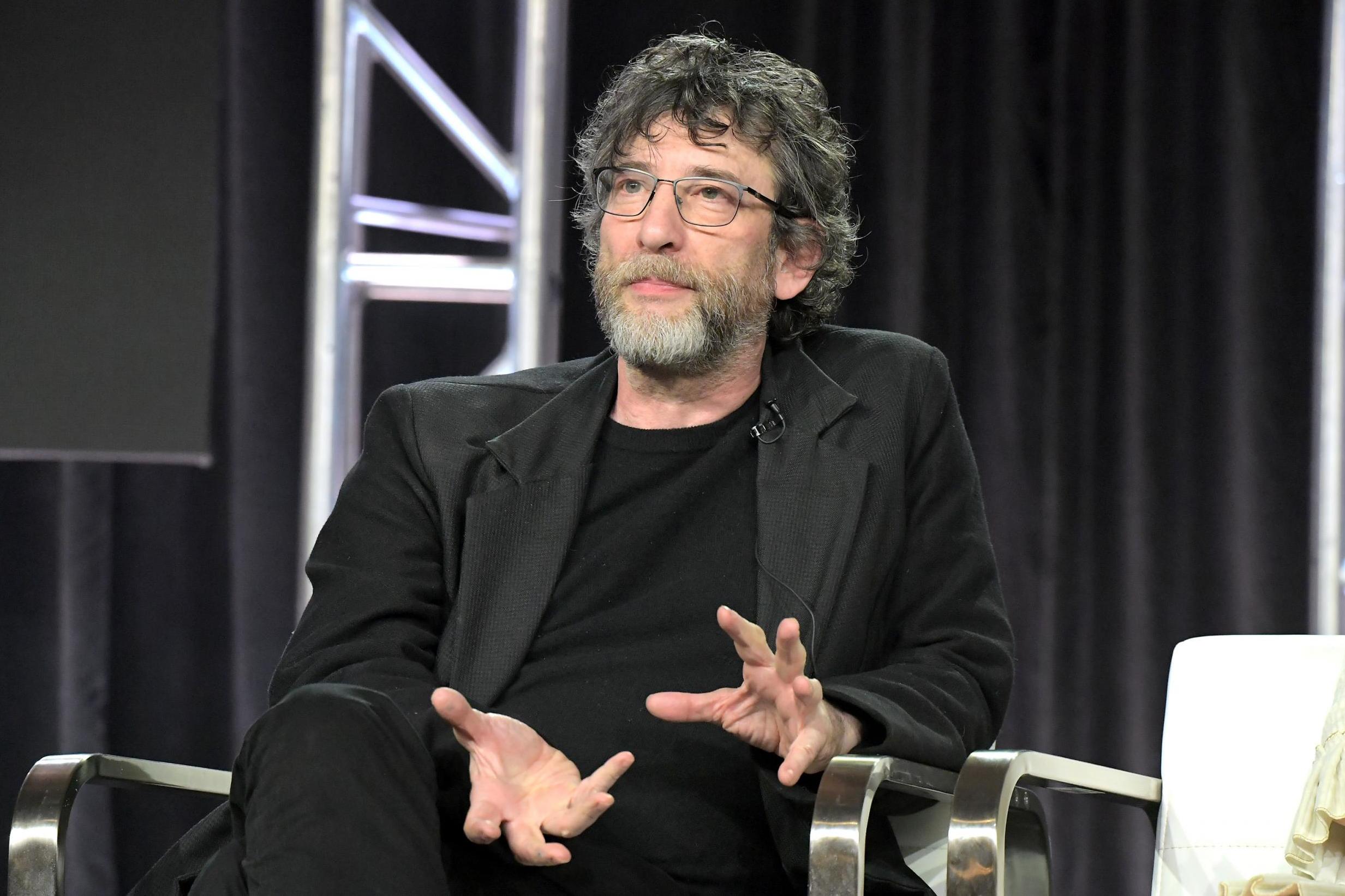
That is even more pronounced when you realise that Bradbury first wrote what would become the novel as a movie for Gene Kelly, who was in his fifties and wanted to have a huge film he could headline. It never got made and Bradbury instead turned it into a novel but there’s something poignant there thinking about the movie star wanting to stave off ageing with a story about a father tempted by dark magic to do just that.
Gaiman first met Bradbury at the writer’s 70th birthday party, organised by his British publishers at the Natural History Museum in London, resplendent with its appropriate dinosaur skeletons.
“It seems quite late to meet him” says Gaiman, “but he didn’t die until he was 91 so we were friends for more than 20 years. That first time we chatted and I was like, ‘Oh my god I met Ray Bradbury!’ And then I remember us moving from people who knew each other to being friends about 10 years later at the Nebula Awards. When we did San Diego Comic-Con he would always put in a request for us to sit next to each other at the signings events. Then he would always read my stuff and send me these really encouraging messages.”
He didn’t live forever, perhaps, didn’t make the centenary of his birth, but he left us with a huge and beautiful body of poetic work that is sitting in libraries, shivering and flittering and waiting to be discovered
Bradbury was a self-taught writer who had a magpie-ish hunger for knowledge in all its forms. And that often infected those who read him, especially at an early age. Gaiman says: “I think because he was very much an autodidact he had that enthusiasm and love for authors and books he had discovered himself. Nobody told you about them, you weren’t taught them at school, you weren’t told they were good. Nobody said, “right, we’re going to study Moby Dick”. You just discovered Moby Dick and it was brilliant.
“For me that is the power of Fahrenheit 451, the work of somebody who educated himself in the library. He didn’t go to college, he didn’t go to university, he was selling papers and selling apples and supporting himself as best he could. And libraries were his college, his university.
“And I remember reading his stories, and he’d reference The Pit and the Pendulum, and I had no idea who Edgar Allan Poe was but I asked my parents for a collected edition, which I got for my 11th birthday, and I plunged into it with enthusiasm as a way of decoding Bradbury.”
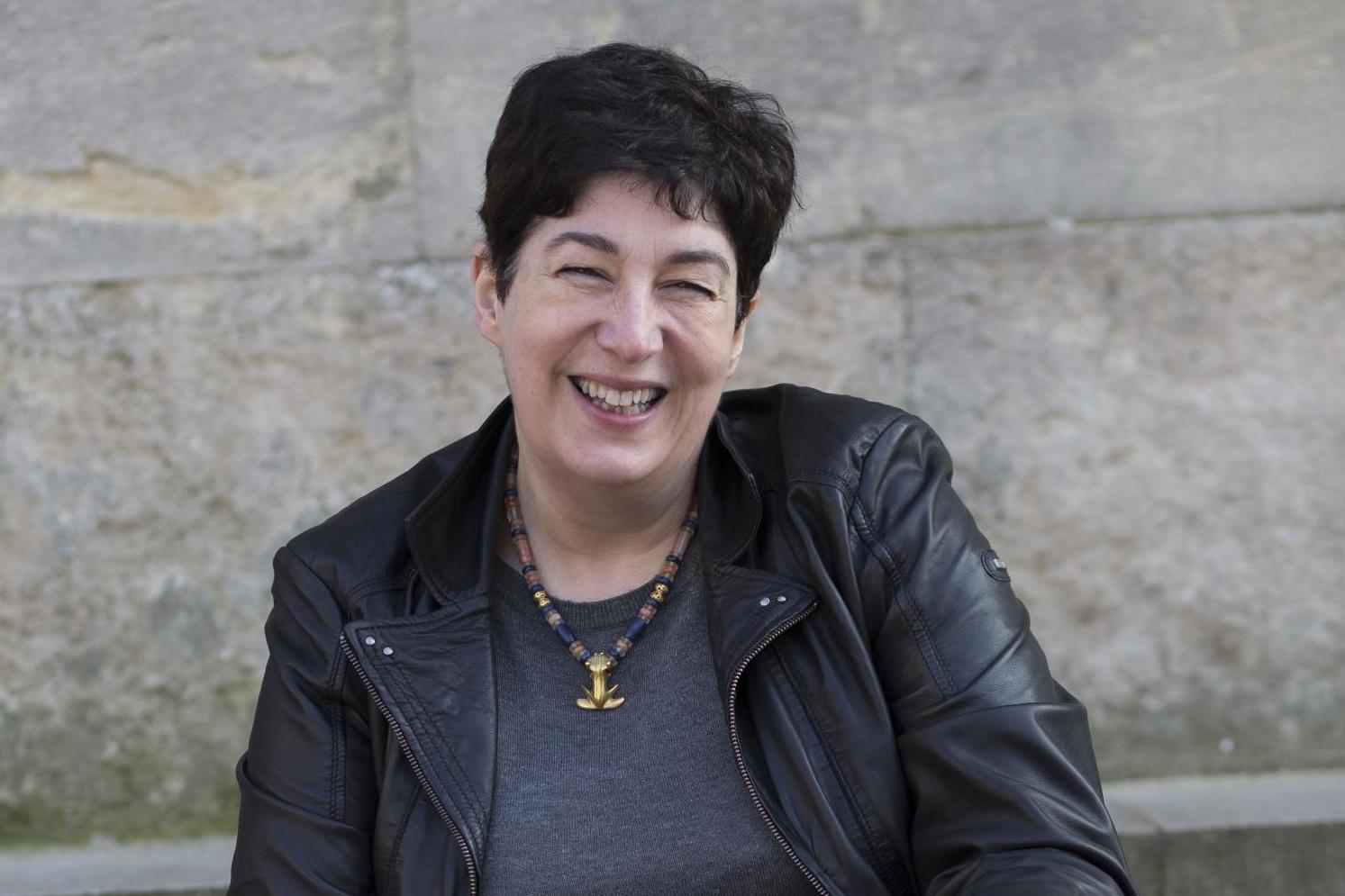
Gaiman wrote a story in honour of his friend, The Man Who Forgot Ray Bradbury, and the last thing he received from him was on Bradbury’s 91st birthday, a video shot by their mutual editor of her reading the story to Bradbury and him responding with a message for Gaiman. “It’s the most lovely little film and it’s still on my desktop and I watch it from time to time and it breaks my heart,” Gaiman says.
You know Ray Bradbury.
But maybe not as well as you might, and that could be because he is often considered to be a science fiction and fantasy author. Which is not to denigrate the genre community, but rather the failure of the literary establishment to perhaps give Bradbury the respect and kudos he deserves.
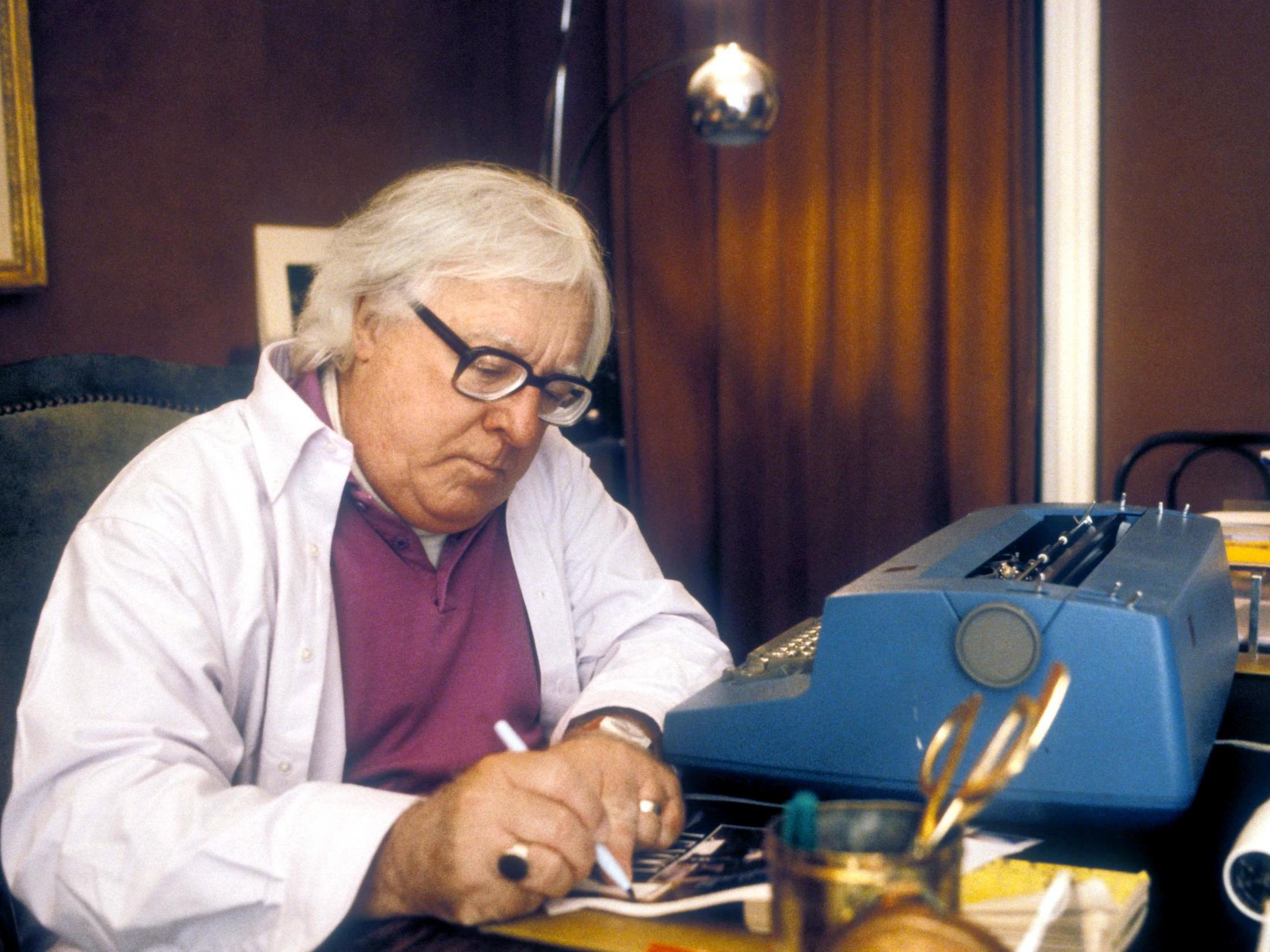
“I think that he had to die to get the sort of profile that he deserves, which is a bit of a pity,” says Harris. “I think it took him a long time to get the approval of the literary world. I think the fact that he wrote so much science fiction and fantasy in some way marginalised him and prejudiced various people against him. But if you actually look at what he’s written… it’s poetry.”
Bradbury did write mainly stories of fantasy, horror and science fiction, but not exclusively. Killer, Come Back To Me, published this month to mark his centenary, is a collection of his crime stories. And one of his most heartbreakingly beautiful novels of all is Death Is A Lonely Business which on the face of it is a noirish detective story but which is really a roman à clef about Bradbury’s own struggle to find creative success as an emerging writer, and a meditation on the changing and passing of communities, and how nothing really lasts.
It’s certainly one of Gaiman’s favourites. The novel was written in 1985, when Bradbury was 65, and Gaiman says: “The beauty of that novel is what he does with words, the amazing deployment of them, and the fact that you know Bradbury was at an age where most writers are hanging up their hats and he was just pulling up his sleeves and saying, yeah, I can do this too. If you think you know what Bradbury is about, you should read Death Is A Lonely Business.”
Gaiman also echoes Harris’ comment about Bradbury being a poet. “He’s the least science fictional science fiction writer there ever was,” he says. “And the other writer who was like that was JG Ballard. Ballard was proved horrendously right in his view of human nature, and Bradbury is the flip side to Ballard. Bradbury is the poet of optimism. The poet of childhood. The poet of joy. And he has high hopes for us. He thinks we can do better. There is a magic to Bradbury that will always remain with us, I hope.”
The Mr Electrico story was one that appeared in various introductions to Bradbury’s collections, and was often considered a tall tale, a shaggy dog story, a very Bradbury-esque confection. In an interview with the Paris Review in 2010, two years before he died, Bradbury said no, not a bit of it. All true. He detailed the day in 1932 when he had two meetings with Mr Electrico, bookending the death of a favourite uncle. He recalled to the magazine: “Seventy-seven years ago, and I’ve remembered it perfectly, I went back and saw him that night. He sat in the chair with his sword, they pulled the switch, and his hair stood up. He reached out with his sword and touched everyone in the front row, boys and girls, men and women, with the electricity that sizzled from the sword. When he came to me he touched me on the brow, and on the nose, and on the chin, and he said to me in a whisper, ‘Live forever!’ I decided to.”
Ray Bradbury immediately went home and became a writer. He didn’t live forever, perhaps, didn’t make the centenary of his birth, but he left us with a huge and beautiful body of poetic work that is sitting in libraries, shivering and flittering and waiting to be discovered and opened and allowed to spill forth its hope, optimism and love of humanity.
You know Ray Bradbury. Maybe. But you could probably know him a little better.
Join our commenting forum
Join thought-provoking conversations, follow other Independent readers and see their replies
Comments